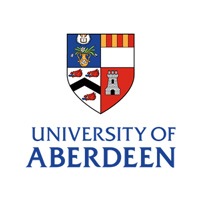fees waived
Chemistry, BSc (Hons)
University of Aberdeen, United Kingdom
Subject ranking
UK / Guardian 2025 12th
UK / Times 2025 15th
UK / ARWU 2024 23rd
Costs
food & rentS$17K / year
Entry requirements
Scholarships
Limited quantity
Information
Code
Intakes
Website (External)
Programmes
Information
Duration
2029
Course summary
Chemistry is not just about chemicals in laboratories – chemistry touches every aspect of our daily lives. Chemistry is about understanding how matter changes and how these changes affect everything from the food we eat and air we breathe, to the medicines we take and the energy we use to power our homes, cars and phones.Ranked 7th in the UK for Chemistry, Times and Sunday Times Good University Guide 2022.Ranked 1st in Scotland for Overall Student Satisfaction, National Student Survey 2021.The brand-new Science Teaching Hub provides the latest high-tech teaching labs and equipment to support your learning and to help you develop industry-standard skills and techniques to launch your chemistry career.Chemistry is a core science that is not only the very essence of life, but is also concerned with the quality of life and its continuous improvement. It is often regarded as the central science, and a degree in chemistry provides a student with many key skills which can be used in many areas not necessarily restricted to the discipline.Students who study chemistry at university go on to work in a wide range of highly rewarding careers, tackling the problems we face today in areas such as drug discovery, environmental protection, forensics, food and agriculture as well as academic careers in teaching or cutting-edge research.Chemistry is also central to the transition to clean and sustainable energy and this programme will also provide you with the foundation for a career in developing battery and fuel cell technology, carbon capture technologies and also the hydrogen economy.The BSc (Honours) degree is the traditional route to a qualification in chemistry. It involves four years of full time study (although direct entry into second year is possible for well qualified applicants, and all four years may be undertaken part time). BSc (Hons) graduates with first class or upper second class honours are eligible to continue to postgraduate research degrees, although most choose from the wide variety of employment options available to chemistry graduates.Chemistry graduates are very employable because a degree in Chemistry opens up many opportunities in areas such as drug development, environmental protection, food chemistry, petroleum chemistry, forensic science and materials development. Our teaching in the first two years aims to give a balanced treatment of all the main branches of the subject. In the third and fourth years we develop a selection of topics in more depth, and offer options which enable students to tailor their programmes to suit their own aptitudes and interests.View all modules on the programme page to find out more about what you will be studying and when. University of Aberdeen modules are designed to give you breadth and depth to your degree. The range of modules you study will allow you to become proficient in all subjects which are directly relevant to your degree giving you greater career options. The use of various forms of assessment and learning environments facilitates the development of generic transferable skills enhancing student employability.Students are assessed by any combination of three assessment methods: coursework such as essays and reports completed throughout the course; practical assessments of the skills and competencies they learn on the course; and written examinations at the end of each course. The exact mix of these methods differs between subject areas, years of study and individual courses.Honours projects are typically assessed on the basis of a written dissertation.Modules
Assessment method
Professional bodies
Professionally accredited courses provide industry-wide recognition of the quality of your qualification.
Our teaching in the first two years aims to give a balanced treatment of all the main branches of the subject. In the third and fourth years we develop a selection of topics in more depth, and offer options which enable students to tailor their programmes to suit their own aptitudes and interests. View all modules on the programme page to find out more about what you will be studying and when. University of Aberdeen modules are designed to give you breadth and depth to your degree. The range of modules you study will allow you to become proficient in all subjects which are directly relevant to your degree giving you greater career options.
A local representative of University of Aberdeen in Singapore is available online to assist you with enquiries about this course.

